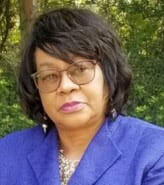By Scott Graber
It is Monday, and we’re in Spartanburg. This morning I’m in the large, high-ceilinged lobby of the downtown Marriott, where I’ve declined Marriott’s onsite breakfast ($14) in favor of a blueberry/lemon scone ($3.50) acquired at nearby Hub City Coffee.
I’m sitting at their sleek, stone-topped bar where Susan and I split a Marriott-made burger last night, telling our bartender that we were newly minted grandparents en route to meet our newly arrived grandson.
Our new friend told us about her own grandson, about the industry that is pouring into the Upstate and the minor league baseball team coming to town. As I listened, I realized that the snake-handling, tongues-speaking, Bible-thumping Upstate demographic had forever changed into something less exotic.
Susan and I are making a long trip to Stamford, Conn. I’ve brought along a collection of wartime essays by Ernie Pyle to help with the Interstate tedium. Pyle was a war correspondent who covered the fighting in Sicily, Italy, France and Germany in World War II.
Unlike other journalists, Pyle didn’t spend much time with the staff officers at Headquarters. He could be found with the PFCs, corporals and enlisted infantry. He wrote about what they were eating, and thinking, and saying about the day-to-day tedium and terror attached to their young lives.
“When I went up the trail my guide was PFC Fred Ford, of 3037 North Park Drive, East St. Louis. He was a tall, rugged fellow and had two weeks of whiskers and grime on his face. He looked ferocious but turned out to be pleasant and friendly …”
Pyle always began by naming the soldier, giving his mailing address, and then described what might be wrong with his life at that moment.
“Trench foot comes from a man’s feet being wet and cold for long periods without taking off his shoes often enough. In the mountains the soldiers sometimes went for two weeks or longer without ever taking their shoes off or being able to get their feet dry.”
Pyle also wrote about about death.
“Then a soldier came and stood by the officer and bent over, and spoke to his dead captain, not in a whisper but awfully tenderly, and he said, ‘I sure am sorry sir.’”
“He reached over and gently straightened the points of the captain’s shirt collar and sort of rearranged the tattered edges of the uniform around the wound and then he got up and walked down the road in the moonlight. …”
Pyle wasn’t the first correspondent to give the reader granular details, but his descriptions of the mud and night-time cold gave the American public a tactile sense of what was happening in the Apennine Mountains as the 5th Army slogged up the Italian peninsula.
Readers got Pyle’s point that this sacrifice was shared by farm boys from Darlington, S.C.; Italian street boys from the Bronx; milk-white Lutherans from Minnesota; Harvard-educated graduates from Boston; and Black teenagers from Dothan, Ala. More than any recruiting film, Pyle convinced the American public that we were a single, indivisible people capable of collective sacrifice and not a collection of tribes or immigrant populations.
At the end of World War II the notion that we were one nation lingered for about 20 years. It remained in place through the retreats and the unhappy, compromised cease-fire at the end of the Korean War. But something had changed by 1966 when Vietnam began to appear on the Nightly News.
“It is often thought that Vietnam was a draftee’s war fought by the poor and minorities. More accurately it was fought mainly by volunteers, including two thirds of those who served, and 73% of those that died came from traditionalist cultures such as Scots-Irish,” writes Jim Webb in Born Fighting.
“And most glaringly, the generation’s academic elites sat out the war. Harvard had lost 691 alumni in World War II but in Vietnam, Harvard College lost 12 men from the 12,595 who made up the classes of 1962 through 1972 combined. …”
Thanks to Pyle’s reporting we knew why the American soldier was fighting in Italy. But in Vietnam correspondents did not routinely give out the hometown address, or facial features or the reasons these miserable men kept boarding the thin-skinned Hueys. The focus shifted from the soldier to the daily body count and the failing strategies of William Westmoreland.
We never got to know the young soldiers in Vietnam. We just wanted out.
Scott Graber is a lawyer, novelist, veteran columnist and longtime resident of Port Royal. He can be reached at cscottgraber@gmail.com.









